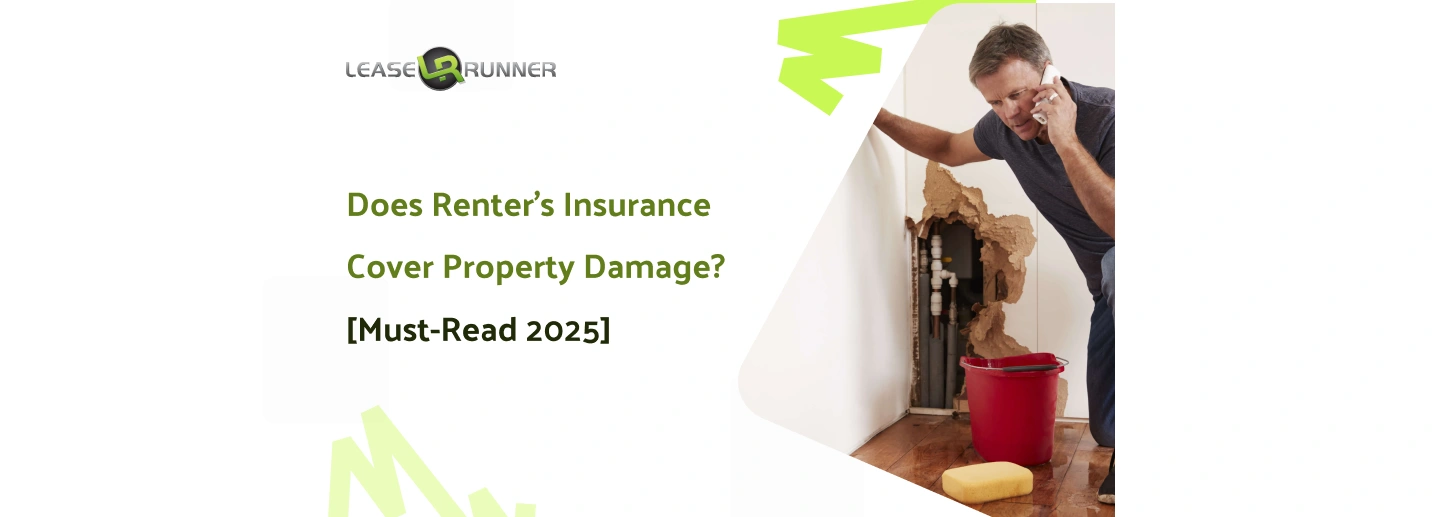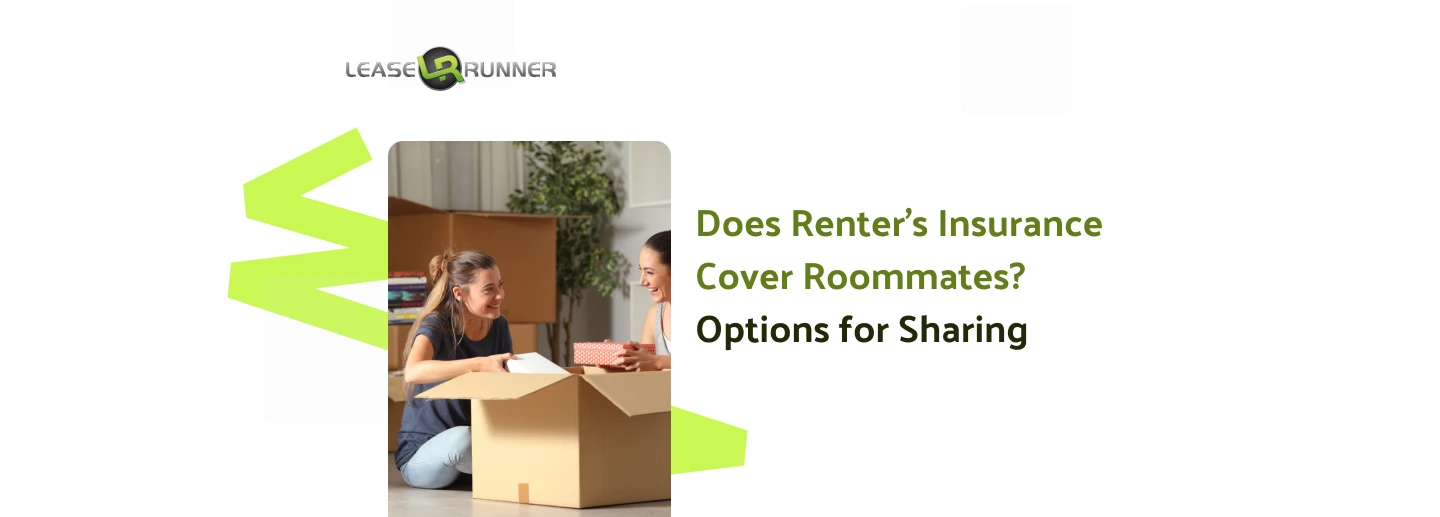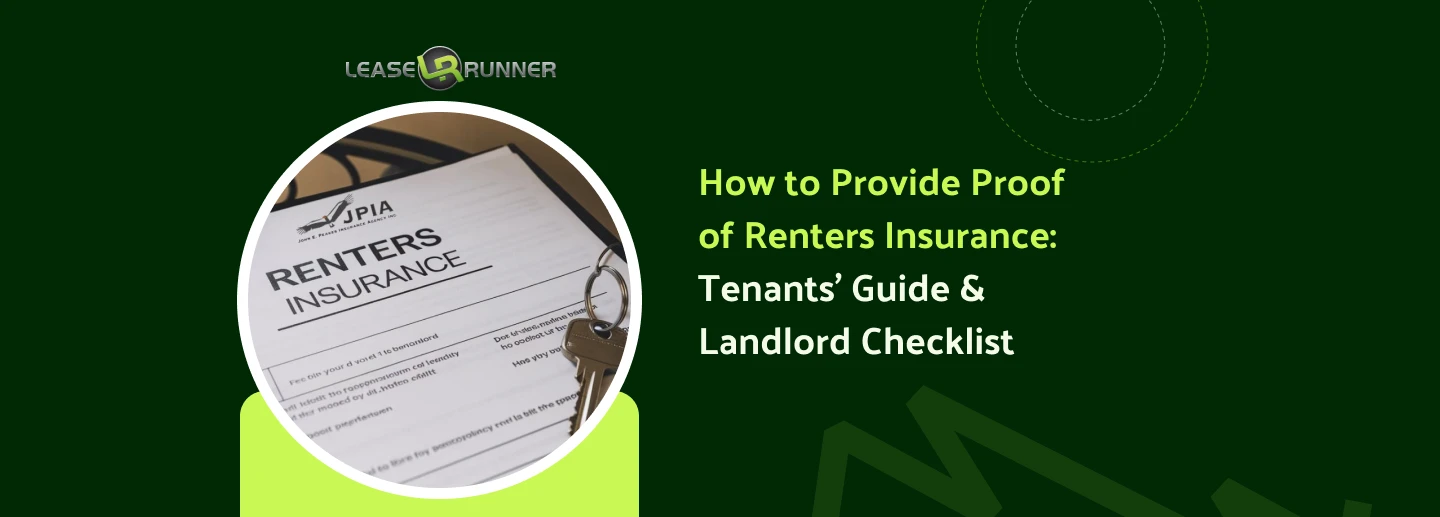Does renters' insurance cover property damage? If you rent, this is one of the most important questions to answer in 2025. Many tenants sign a lease without fully understanding how renters' insurance for property damage works.
At LeaseRunner, we believe both tenants and landlords should know exactly what tenant damage coverage is, whether renters' insurance accidental damage is included, and if renters' insurance covers damage to an apartment or car. We break it all down in this ultimate guide.
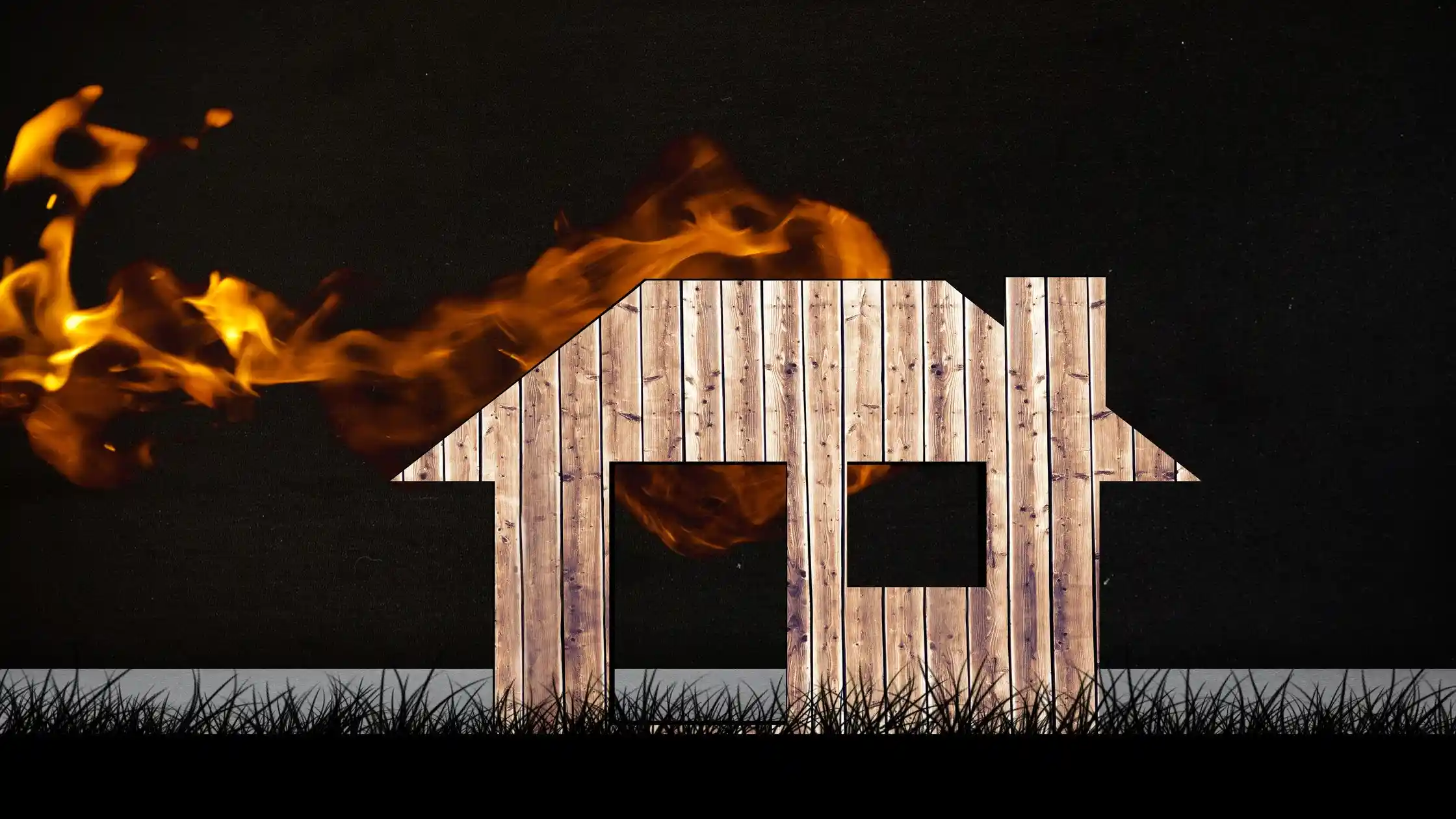
Quick Facts Table: Renters' Insurance and Property Damage
An Overview of Renters' Insurance
Before we answer whether renters' insurance covers property damage, it’s smart to know the basics. Renters' insurance isn’t just an extra bill — it’s real protection that can save you thousands.
What is Renters’ Insurance?
Renters' insurance for property damage is a type of policy that protects tenants’ personal belongings in a rental property. Renters' insurance covers loss, damage, and offers protection for personal items like your couch, clothes, computer, or bike in cases of fire, theft, or certain types of damage
A basic renters' insurance for accidental damage includes three main parts:
- First, it covers your personal property. If your TV, bed, or books are stolen, ruined by smoke, or destroyed by a fire, your policy can pay to fix or replace them. For example, if a candle tips over and burns your sofa, you can file a claim. Or if a thief steals your laptop from your bedroom, that is covered too.
- Second, tenant damage coverage means liability. This protects you if you cause damage by accident. For instance, if you forget a pot on the stove and start a small fire that damages your neighbour’s wall, your insurance may pay for repairs. If a visitor trips over your rug and breaks a wrist, your liability coverage can help with medical bills.
- Third, it covers your living expenses if you cannot stay in your apartment due to a covered disaster. If a burst pipe or kitchen fire makes your home uninhabitable, your insurance will pay for a hotel or temporary rental until you can return. This is called additional living expenses.
One thing you must remember is that renters' insurance is totally different from landlord insurance, which covers the building itself (walls, roof, pipes, and any structural damage), not the tenant’s personal belongings.
Basic Coverage of Renters' Insurance
When people ask: “Does renters' insurance cover property damage?”, they usually mean: “What if something I own gets wrecked or stolen?” A standard policy will help replace or repair your stuff if it’s damaged by a “covered peril”, which is a specific event (like fire or theft) that your renters’ insurance will pay for if it causes damage.
What exactly does a renter's insurance cover? Common covered perils include:
- Fire or lightning
- Smoke damage
- Theft or burglary
- Vandalism
- Water damage from burst pipes (not floods!)
However, your policy doesn’t usually pay for wear and tear or damage caused by neglect. If you overload an outlet and start a fire, your policy might cover it as renters' insurance accidental damage. But if you ignored a slow leak for months until mold took over, your claim might be denied.
Additional notes:
- Will renters' insurance cover car damage? Not directly. If someone steals items from your car, your renters' policy might help, but the vehicle itself is only covered by auto insurance.
- Always check your deductible. It’s the amount you pay before your insurance kicks in.
Does Renter’s Insurance Cover Property Damage? A Complete Breakdown

The truth is that coverage depends on what got damaged, who owns it, and how it happened. Many tenants do not realize that renters' insurance for property damage is really about protecting the things inside your space, not the building itself. Let’s break this down with simple real-life examples, so you know exactly when you’re covered — and when you’re not.
Does Renter’s Insurance Cover Tenant’s Personal Property?
Yes. One of the main purposes of renters' insurance for property damage is to protect your personal belongings. This means if a fire destroys your couch, your clothes, or your laptop, your policy may pay to fix or replace them.
For example, if a kitchen fire starts when you accidentally leave the oven on, and smoke ruins your curtains and TV, that is covered.
But you should check your policy limits. Some high-value items, like an engagement ring or expensive camera gear, may need extra coverage called a rider. If you own a bicycle worth $2,000 or a designer bag, confirm your policy covers the full cost. Keep a list of your things and update it every year so you know you have enough protection.
Does Renter’s Insurance Cover Tenant Liability?
Many tenants overlook this part, but it is key. If you ask, does renters' insurance cover property damage you cause to other people’s property, the answer is usually yes, if it is an accident. For example, if you leave the sink running and water leaks into your neighbor’s unit below, your tenant damage coverage may help pay for their repairs.
Liability also protects you if someone gets hurt in your rental. If a friend slips on a wet floor, breaks a bone, and sues you, your liability coverage can help with their medical costs and any legal fees.
But it is important to remember: if you damage something on purpose, or you are grossly careless ( like never fixing a leak that destroys the floor), your insurance may deny the claim.
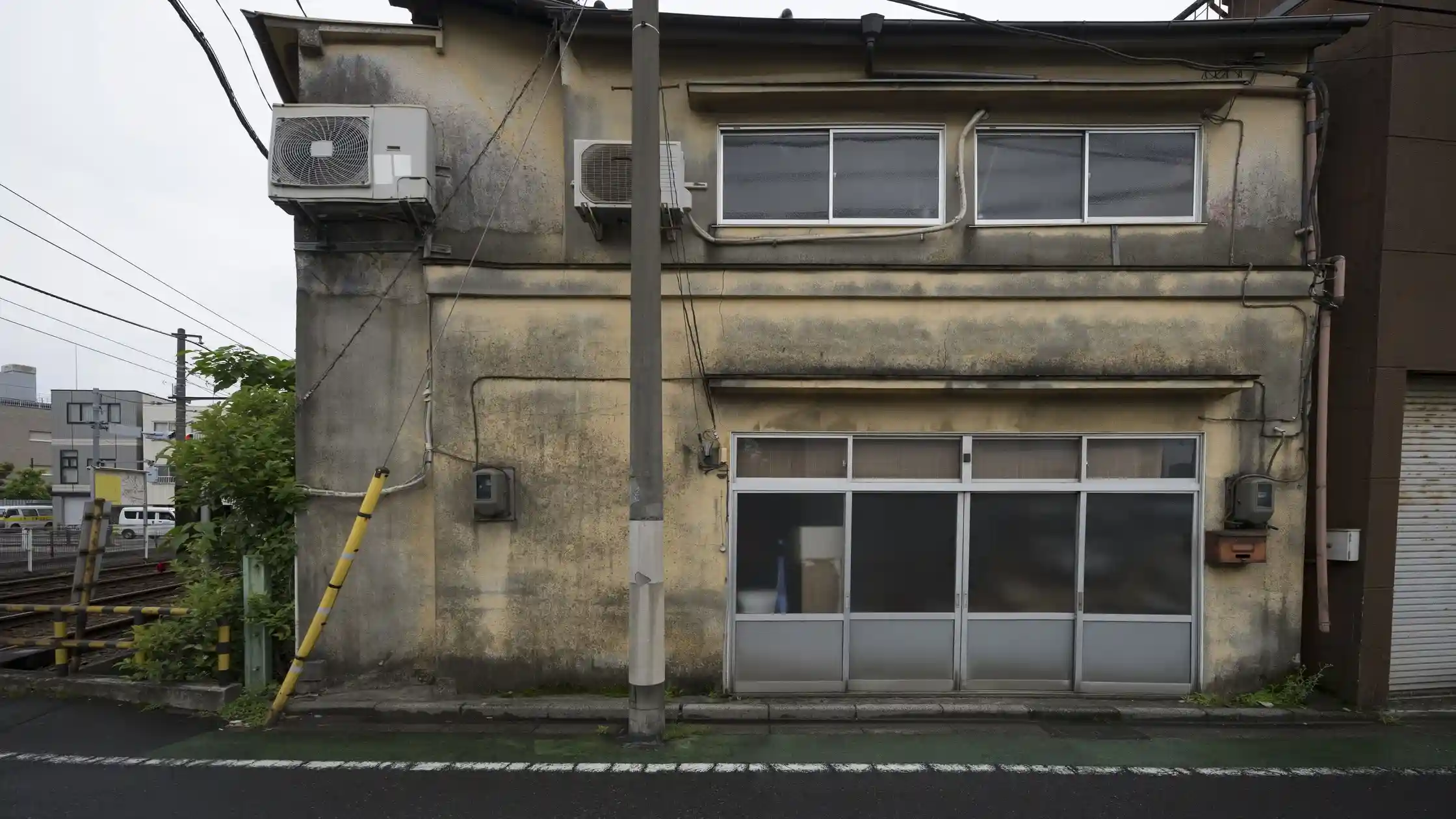
Does Renter’s Insurance Cover Accidental and Unintentional Damage?
Renters' insurance accidental damage means your policy helps with unexpected accidents you did not plan to cause. Picture this: you knock over a candle, it sets the rug on fire, and smoke damages the walls and ceiling.
Your policy helps cover your damaged things (such as the rug or your furniture), and the landlord’s walls might be covered through your liability section.
But accidental does not mean you can ignore problems. For example, if you forget to close a window during a rainstorm and the carpet gets soaked, your claim might be rejected for neglect. It is the same if you leave a space heater running while you are gone for days. Insurance expects you to take normal steps to prevent damage.
Does Renters’ Insurance Cover Apartment Property Damage?
In most cases, your landlord’s policy pays for structural repairs. If a storm breaks the roof or a pipe inside the wall bursts, fixing the wall is the landlord, not yours.
However, your tenant damage coverage might come into play if you cause the damage yourself. For example, if you drill holes all over the walls or your pet scratches the doors beyond normal wear, your landlord can ask you to pay.
If it was accidental ( for example, you flooded the bathroom and water damaged the floor below), your liability may pay the repair cost to the landlord.
This is where tenant damage coverage matters. It protects you from paying huge repair bills out of pocket if something you did by mistake damages the rental unit. This type of protection is also why landlords often ask for proof of insurance before you move in.
Does Renters Insurance Cover Property Damage After Tenants Move Out?
Maybe. If you cause accidental damage before handing over the keys, like a hole in the wall, your policy could help. But normal wear and tear, scratches, or carpet stains are usually the tenant’s responsibility. Landlords often keep deposits for this reason.
This is also why some tenants add extra protection when moving. Therefore, don’t forget to check your policy and talk to your insurer about renters' insurance accidental damage limits when vacating.

What Property Damage Is Not Covered by Renters' Insurance?
Many renters believe their policy will cover every type of damage. Sadly, this is not true. Knowing what your renters' insurance for property damage does not cover will help you avoid big surprises when it matters most.
Structural Damage to the Building
A frequent misunderstanding is that renters' insurance covers damage to the building itself. The simple answer is no. Your landlord owns the walls, roof, flooring, and pipes. If a tree falls on the roof during a storm or ancient plumbing breaks within the walls, your landlord's property insurance will pay for the repairs.
Your insurance only covers your items and what you do. It doesn't keep the building safe. This is why a lot of renters want to know whether renters' insurance covers damage to the walls or ceilings of their apartments. No, unless you are discovered to be the one who caused the harm.
Negligent or Intentional Damage
Another key limit is the damage you cause on purpose or through carelessness. Your tenant damage coverage does not protect you if you trash the place because you are upset with your landlord.
If you kick holes in the walls when moving out, your policy will not pay. If you let a sink leak for months and it rots the floor, your claim could be denied for negligence. So, the answer to the question "Does renters insurance cover damages when moving out when you've caused harm on purpose?" is no.
Natural Disasters and Other Exclusions
Then, does every renter's insurance cover natural disasters? No, it doesn’t. Standard renters' insurance for property damage does not cover everything in nature. Floods, earthquakes, and hurricanes usually need special add-ons. If your area is at risk for these disasters, ask your insurer about extra coverage.
Never assume your renters' insurance for accidental damage will cover natural disasters. Always double-check what is included so you know exactly how protected you are.
Does It Cover Damage to the Landlord’s Property?
The truth is, your renters' insurance for property damage does not protect the building itself — that’s your landlord’s job. But your policy can help pay if your actions cause damage to things like floors, cabinets, or appliances inside the unit.
Here’s how it works:
- Accidental Overflow: You forget the bathtub is running. Water spills over and leaks through the floor, soaking the ceiling below. Your tenant damage coverage can help pay the cost of repairing your landlord’s damaged ceiling and drywall.
- Kitchen Fire: You leave a candle burning near your kitchen cabinets. The flame catches the cabinets and causes smoke damage to the walls. This is exactly where renters' insurance accidental damage comes in. It helps cover the repairs so your landlord does not pay alone.
- Appliance Damage: You move your fridge and scratch deep gouges into the hardwood floor. This is another case where your tenant damage coverage may pay for fixing the landlord’s flooring.
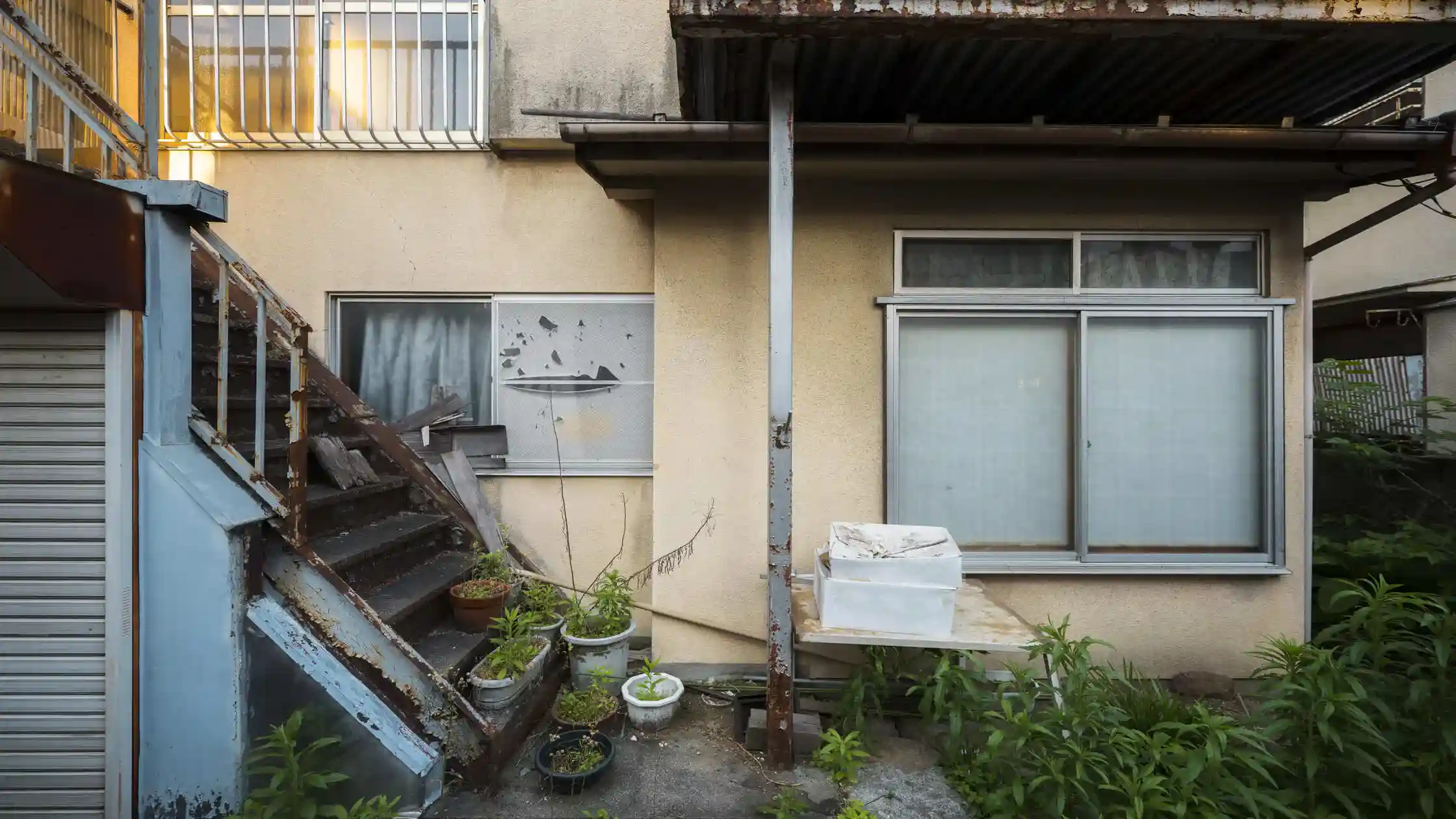
Why Renters' Insurance Matters to Landlords?
Landlords should pay close attention to whether tenants have renters' insurance for property damage. This coverage is more than a box to check—it can save landlords from costly repairs, legal battles, and insurance headaches. Here's why requiring tenant damage coverage is a smart move for any property owner.
Protects the Property Owner from Tenant-Caused Losses
If a tenant causes a fire, the landlord’s policy pays first, but their insurer might come after the tenant for costs. Tenant damage coverage makes sure the tenant’s insurer steps in to pay instead.
Reduces Landlord's Insurance Claims
If tenants have renters' insurance that covers accidental damage, landlords may not have to file claims for every incident. If a tenant's bathtub overflows and damages the flat below, the tenant's insurance will pay for the repairs. This keeps the landlord's insurance costs down and cuts down on paperwork.
Encourages Tenant Accountability
Knowing they have renters' insurance with accidental damage coverage, tenants may act more responsibly. Some states even allow landlords to require renters' insurance in the lease.
People who rent property and have renters' insurance know that they may have to pay for any damage they cause. This makes people more careful, such as not hanging heavy things on walls or leaving windows open during storms.
Some places let landlords require renters to get insurance in case they accidentally damage anything during the lease.
How Can Landlords Make Sure Tenants Have Renters' Insurance?
Landlords want to keep their property safe. One way is to make sure every tenant has renters' insurance. This helps if a tenant's things get lost or broken. It also helps if a tenant causes damage to the rental unit. Here are easy steps and clear examples for landlords.
1. Including Renters' Insurance in Lease Agreements
To ensure tenants maintain proper coverage, it’s important to clearly outline the renters’ insurance policy and requirements in the lease. State that tenants must have renters’ insurance with at least $100,000 in coverage and provide proof of insurance before moving in.
Make it clear that the policy must remain active throughout the tenancy; if coverage lapses, tenants should be reminded to renew or risk violating the lease. For example, a landlord might check the policy’s expiration date and, if it’s outdated, request an updated copy. If the tenant fails to provide it, the landlord can issue a formal warning.
2. Verifying Renters' Insurance Coverage
Verifying that tenants have active renters’ insurance is essential for ongoing protection. Always request proof of insurance before move-in, whether as a physical document or an email from the insurance provider. Utilize online tools like LeaseRunner to track policy expiration dates and set reminders to confirm renewals.
For instance, if a landlord receives a notice that a tenant’s policy is about to expire, they can quickly send a reminder. The tenant then submits the updated policy, ensuring continuous coverage.
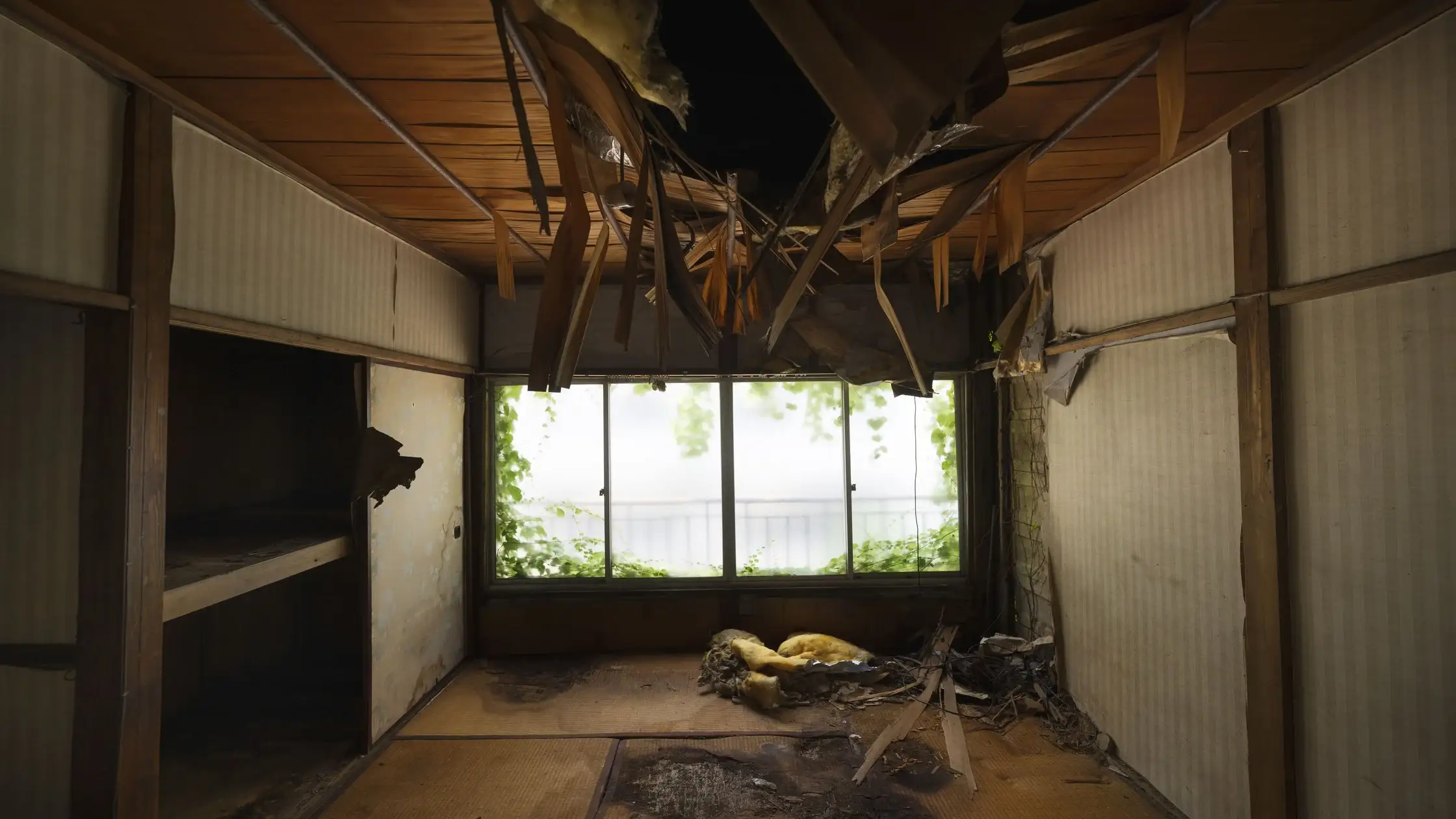
3. Talking to Tenants About Renters' Insurance
You should communicate clearly with your tenants about renters’ insurance. Tell them that renters’ insurance protects their personal belongings and covers any accidental damage they cause, but it does not cover the whole building.
You should explain that your landlord insurance covers the structure, while their renters’ insurance covers their possessions and liability. At move-in, give tenants a simple handout that says, “Your insurance covers your things, not the building.”
Also, encourage tenants to ask questions if they are unsure about their coverage. You can remind tenants that renters’ insurance can help if theft, fire, or water damage affects their belongings. More importantly, advise your tenants that they can keep a list or take photos of their items to make filing a claim easier.
You can also let tenants know that some policies will pay for a hotel or temporary housing if their rental becomes unlivable.
4. Extra Advice for Landlords
For enhanced protection and peace of mind, landlords can implement a few additional strategies regarding tenant insurance.
Landlords should ask tenants to add them as an "additional interest" on their insurance policy; this ensures that the landlord receives a notification if the policy is ever canceled or lapses, allowing for continuous monitoring of compliance.
To facilitate the process for tenants, consider providing a list of reputable insurance companies or online platforms where they can easily obtain coverage. It's a good practice to send a yearly reminder to check each tenant's insurance coverage, especially upon lease renewal, to confirm it remains active and adequate.
Furthermore, advise tenants to select a policy that comprehensively covers both their personal belongings and any potential damage they might accidentally cause to the property, ensuring robust protection for both parties.
By consistently following these proactive steps, landlords can effectively ensure their tenants are adequately insured, thereby significantly lowering overall risk and fostering a safer, more secure environment for everyone involved.
Conclusion
Does renters' insurance cover property damage? Through our article today, the ultimate answer is yes. Renters' insurance for property damage can help pay for accidental damage you cause to others' belongings and for your own personal property if it is damaged or stolen in covered events such as fire or theft.
However, renters' insurance for property damage does not include the building structure or any intentional acts. Always review your policy details to know exactly what is covered and what is not. For more information regarding this topic, feel free to visit the LeaseRunner blog.
FAQs
Q1. Does renters' insurance cover property damage to my belongings?
Yes, if the damage is caused by a covered peril like fire, theft, or certain types of water damage.
Q2. Does renters' insurance for accidental damage include spills or drops?
Often yes, if the event is sudden and unintentional. Always check your policy.
Q3. Will renters' insurance cover car damage?
No, renters' insurance does not cover damage to vehicles. You need auto insurance for that.
Q4. Does renters' insurance cover damages when moving out?
Usually not for normal wear and tear, but it may cover accidental damage if you're found liable.
Q5. What is holding damage coverage?
This is liability protection for damage you accidentally cause to someone else's property, including your landlord's.
Q6. Does renters' insurance cover damage to apartment fixtures?
Sometimes, if you're found liable for accidental damage. The landlord's policy covers the building itself.
